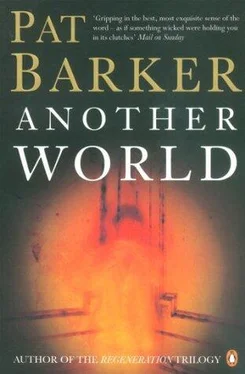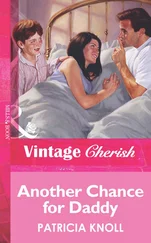He’d have approved of that. As does the congregation, whose, for the most part, frail and quavery voices are buoyed up by the familiar tune.Beneath the shadow of Thy ThroneThy saints have dwelt secure;Sufficient is Thine Arm alone,And our defence is sure.
Among the memorial tablets lining the north wall is one belonging to a man who’d have gone bankrupt if his contemporaries had believed the last verse. Nick’s surprised to see the name Fanshawe, until he reflects that while they lived at Lob’s Hill this would have been their parish church, just as now it’s his.Time, like an ever rolling stream,Bears all its sons away;They fly forgotten, as a dreamDies at the opening day.
An odd thought for a funeral, when everybody’s promising to remember for ever, but then again he hears Geordie say: ‘I am in hell.’ Present tense, the tense in which his memories of the war went on happening. A recognized symptom of post-traumatic stress disorder, a term Geordie probably never knew. Though he knew the symptoms well enough, he knew what it did to the perception of time. The present — remote, unreal; the past, in memory, nightmare, hallucination, re-enactment, becoming the present. I am in hell.
But suddenly, as the congregation thunders out the final verse, Nick begins to feel angry on Geordie’s behalf. It’s too easy to dismiss somebody else’s lived experience as a symptom of this, that, or the other pathology: to label it, disinfect it, store it away neatly in slim buff files and prevent it making dangerous contact with the experience of normal people. But suppose, Nick wants to shout at rows of faceless white-coats, suppose you’re wrong and he was right. Suppose time can slow down. Suppose it’s not an ever rolling stream, but something altogether more viscous and unpredictable, like blood. Suppose it coagulates around terrible events, clots over them, stops the flow. Suppose Geordie experienced time differently, because, for him, time was different? It’s nonsense, of course. And just as well, because if true, it would be a far more terrible truth than anything the passage of time can deliver. Recovery, rehabilitation, regeneration, redemption, resurrection, remembrance itself, all meaningless, because they all depend on that constantly flowing stream. But then Geordie’s truth had been terrible. Ultimately, for him, all those big words had meant nothing. Neither speech nor silence had saved him. I am in hell .
… And our eternal home. Amen . With a rustling of thin paper, an epidemic of emphysemic coughs, the congregation sits down, and listens to the Vicar doing his creditable best to speak poignantly and justly about a man he had never known.
Afterwards Helen reads the beatitudes, and then they follow the coffin out into the churchyard, and stand around the open grave, the hot sun beating down on to the backs of their necks. Nick’s funeral suit is made of winter-weight wool. Within a few minutes he’s feeling queasy and wishing the Vicar would hurry up. Miranda’s wearing a short black dress. Fran’s outrageously bright in raspberry pink, but what can she do? She has no black maternity wear, and it’s too close to the birth to buy a new dress. Gareth looks bored, though he wanted to come, apparently. Frieda, perfectly turned out, black from head to toe, looks satisfied and anxious, which means it’s gone all right so far, but there’s still the tea to come.
The grave’s lined with plastic grass, and he’s sorry for that. When the time comes he picks up a handful of earth and throws it on to the coffin lid. He sees Geordie’s face lifted up as the clods of earth land a few inches from his nose. Don’t say it, Nick pleads. Silence. Perhaps he’s appeased at last, or merely waiting some more opportune time.
Then it’s over. They can go home.
Frieda says, ‘It’s just as well we got that extra joint,’ and so it is, for once the first hush and nervousness are over, they’re a hungry as well as a noisy crowd. Miranda goes among them with a tray of drinks and soon port-wine complexions are turning an even richer hue, and the papery skins of old ladies are developing a hectic flush on a couple of glasses of sweet sherry.
Nick talks to some cousins he hasn’t seen for years and will probably not see again until Auntie Frieda goes, though Geoffrey, by the looks of him, might go before her. Geoffrey is Harry’s son, a frail old man, leaning on a stick. Looking at him, Nick sees a small boy emerging from the Scout Hut, his tummy stretched to bursting point with jelly and custard, boasting to his pal about how much he’s had to eat. ‘I’d rather have me dad.’ And little Geoffrey’s face falling, as, for the first time, he connected the treats with his missing father. ‘Never knew my father,’ he says to Nick, accepting a glass of beer instead of the wine that disagrees with his stomach. ‘So Uncle Geordie was always a bit of a hero to me.’
In the womb when Harry was killed. There must be hundreds, thousands, probably, like him, Nick thinks, white-haired sons and daughters of murdered children.
He stands and looks around, proud of his family, proud even of Gareth, who’s handing round miniature sausage rolls and politely answering questions from people who don’t know where he fits in.
But the heat of the room and the thick suit’s making Nick feel sick. He doesn’t feel he can remove his jacket, but surely now he’s entitled to slip out for a quick cigarette. The buzz of voices dies abruptly as he steps out of the french windows. Groping in his pocket for cigarettes and lighter, he goes round the side of the house where he’s least likely to be disturbed. Decaying cabbages, with their flabby, mysteriously runed stalks and thick yellow smell, line the path. He hears footsteps coming round the corner of the house, and braces himself for more condolences, but it’s only Miranda.
‘I’ve brought you this’ — handing him a glass of beer so cold the glass is sweating. ‘You looked boiled, Dad.’
‘I feel it.’ He doesn’t know what she looks like. In the past few days the long hair and skirts have gone. Instead, there’s a short, rather jagged hairstyle and what used to be called, in his younger days, a pussy pelmet. Eighteen, that’s what she looks like. ‘I’ll be glad when this is over.’
They sit together in silence for a while. Then: ‘I’m going home tomorrow,’ she says.
Home. It hurts. ‘You will ring me and let me know if there’s anything I can do?’
She smiles, irony just perceptible in the depths of her eyes, like the glint of a fish turning. He knows, she knows, there’s nothing he can do.
Upstairs, Gareth, who’s eaten a sausage roll, is flossing his teeth. As his fingers see-saw the thread between the difficult back teeth, he keeps his gaze fixed on his eyes in the glass. Hanging on a nail beside the toothbrushes, there’s Nick’s grandfather’s mirror, the one he used to use for shaving, though it’s made of steel, and makes your face look swollen and blurred. Last night, Nick was telling Gran about seeing Geordie’s body taken out in a body bag, and how horrible it was. When Gareth’s grandad died, he was sent upstairs out of the way, he wasn’t supposed to see anything, but he did. He looked out of the spare room window and saw them humping this black plastic sack, and Nick’s right, it was horrible. Gareth spits, and swirls away the pinky splat. Then he replaces his toothbrush, and reaches for Nick’s, intending to do the usual brisk rub round the lavatory bowl. Only he feels he can’t do that now. He looks at the toothbrush in his hand and returns it to the rack.
Downstairs, the chattering rises to a climax before at last the first few people begin to say goodbye. By responding very loudly, Frieda manages to indicate to everybody that it’s time they were off.
Читать дальше












